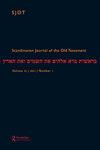Military Coups in Ancient Israel and Their Implications for Conceptions of YHWH’s Divine Army
IF 0.1
3区 哲学
0 RELIGION
引用次数: 0
Abstract
ABSTRACT Military officers who posed a threat to the kings of Israel are readily found throughout the biblical texts. Although officers were often loyal servants who fought battles on behalf of their kings, they could also prove dangerous adversaries if the tide of opinion turned against the monarchs. In this light, it is interesting that YHWH’s divine army never mentions any generals or ranks; despite its innumerable numbers, YHWH had sole command. This paper explores whether this portrayal of YHWH’s divine army was a natural consequence of the authors’ focus on YHWH, or whether it was influenced by an awareness of the threat that military commanders could pose toward their kings.古代以色列的军事政变及其对耶和华神军概念的启示
对以色列国王构成威胁的军官在圣经文本中随处可见。虽然军官通常是代表国王作战的忠诚仆人,但如果舆论的潮流转向反对君主,他们也可能成为危险的对手。从这个角度来看,有趣的是,耶和华的神圣军队从来没有提到任何将军或军衔;尽管人数众多,但耶和华是唯一的主宰。本文探讨了这种对耶和华神圣军队的描绘是作者关注耶和华的自然结果,还是受到军事指挥官可能对其国王构成威胁的意识的影响。
本文章由计算机程序翻译,如有差异,请以英文原文为准。
求助全文
约1分钟内获得全文
求助全文

 求助内容:
求助内容: 应助结果提醒方式:
应助结果提醒方式:


